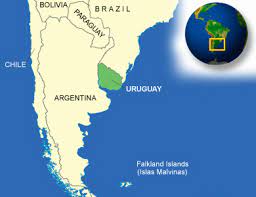Alex Schadenberg
Executive Director, Euthanasia Prevention Coalition
 A bill to legalize euthanasia and assisted suicide was introduced on March 11 in the Uruguayan Congress. The Uruguay bill lacks definition allowing it to be have a wide interpretation.
A bill to legalize euthanasia and assisted suicide was introduced on March 11 in the Uruguayan Congress. The Uruguay bill lacks definition allowing it to be have a wide interpretation.
My commentary of the bill is based on a google translation of the text of the bill.
Article one of the bill provides legal protection for doctors who are willing to cause the death or assist the suicide of:
“a person of legal age, psychologically fit, ill with a terminal pathology, irreversible and incurable or afflicted by unbearable suffering, kills you or helps you kill yourself.”
It is clear that the bill legalizes euthanasia and assisted suicide because it states that the doctor will kill you or help you kill yourself makes.
Euthanasia is an intentional act to kill a person, upon request, who is disabled, sick or suffering. In most countries, euthanasia is prohibited by homicide or murder laws.
Assisted suicide is to intentionally provide the means for another person to kill oneself.
The Uruguay bill allows for a wider interpretation because it does not define the terms terminal pathology or unbearable suffering.
The bill does not require a person to try effective treatments. There are many terminal conditions, where the person, with treatment may have years to live. The term unbearable suffering is subjective. Some people find their condition to be unbearable but once they have received pain or symptom management, they change their mind. If terms are not defined or subjective, the doctors who participate in euthanasia will interpret the meaning of these terms over time.
Article two of the bill requires a second doctor to examine and confirm the medical diagnosis of the person requesting death.
Article three of the bill requires the primary doctor to confirm that the person requesting death is competent, free from coercion, has a continuous desire to die, and knows about alternatives. This article requires a second interview be done at least 30 days after the first request. The bill allows someone else to sign for the person requesting death. Allowing another person to sign-off is inappropriate and dangerous.
Article four of the bill requires the formal request for death to be made 3 days after the second interview. Once again, the bill allows someone else to sign. The bill also allows one of the witnesses to be a beneficiary. In most jurisdictions, a beneficiary is unable sign a will. This issue deals with life and death, rather than property and finances.
Article five of the bill states that the request is revocable.
Article six of the bill requires that the doctor who prescribes the lethal drugs (assisted suicide) must assure that the drugs are only used by the person who they are prescribed for. If the prescribing doctor is not present at the time of death, how will the prescribing physician assure that this happens?
Article seven of the bill requires the doctor who does the act or prescribes the lethal drugs to report the death to the Commission on Bioethics and Integral Quality of Health Care of the Ministry of Public Health, whether the doctor was present at the death or not.
This bill provides the physician with the: power to decide if the person should die, legal protection to cause the death, and then legal oversight to self-report the death to the authorities. Self-reporting systems provide the perfect legal cover since the only person who would know if the law was broken is the person who is dead.
Comments: The bill does not define the key terms, therefore the Uruguay euthanasia and assisted suicide bill can be interpreted in wide manner. For instance, most US states define terminal illness with a six month prognosis.
The bill does not require a person to at least try effective treatments. There are many medical conditions that, if untreated, become terminal. Unbearable suffering is a subjective term. A person may be depressed or experiencing suicidal ideation and decide that their health condition is unbearable in order to be put to death.
Canada’s euthanasia law does not define key terms, creating a natural slippery slope with the number of euthanasia deaths and reasons for killing expanding very quickly.
The bill gives the power to decide life or death to the primary doctor with confirmation by a second doctor. Nowhere does the bill prohibit doctor shopping which is common in jurisdictions that have legalized medical killing.
This bill is accurate when it states that the doctor can kill you or help you kill yourself. Most jurisdictions employ softened language such as assisted death or medical aid in dying. We must call it what it is.
Legalizing euthanasia permits medical murder. It kills the patient, who is in need of care not killing, and it changes the doctor who turns from healing to killing.
Uruguay needs to rejects this bill.







